The ISyE alumnus and professor of the practice served for 32 years, worked for the NBA, and just finished his doctorate.
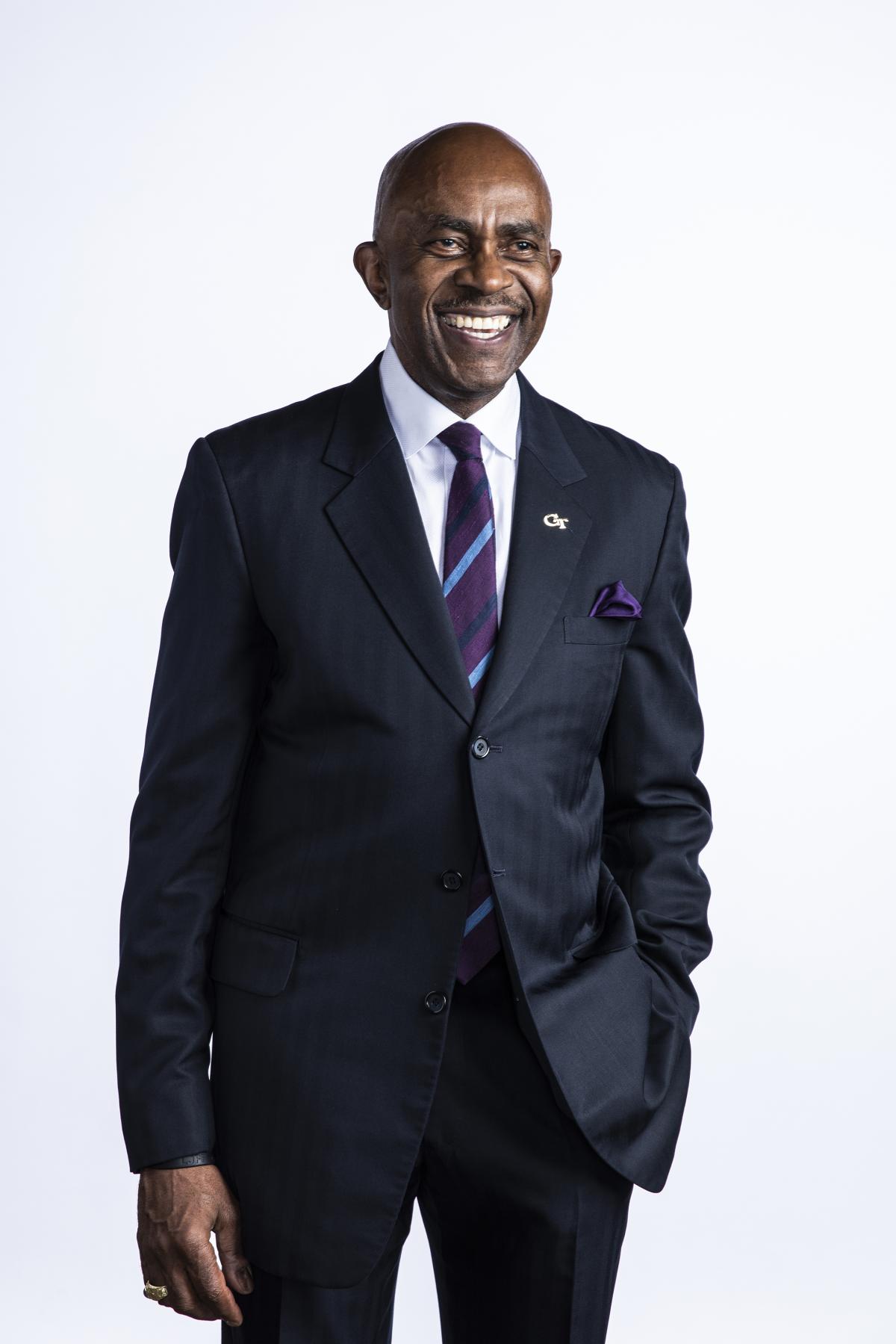
A few weeks ago, Ronald Johnson was in the throes of an experience common to many graduate students. He was making final preparations for his dissertation defense after years of research and study.
The difference between him and his peers was that Johnson wasn’t at the beginning of his career. Rather, he’s developing the third, or maybe fourth, chapter of his story after serving three decades in the U.S. Army and helping the NBA spin up its referee operations department.
For the last 10 years, he’s been at Georgia Tech, where he earned a master’s degree in operations research in 1985. Johnson is a professor of the practice in the H. Milton Stewart School of Industrial and Systems Engineering and also was managing director of the Tennenbaum Institute for Enterprise Transformation. He teaches Statistics and Applications for engineering and computer science students, advises student groups like the Sports Business Club, and works with the Georgia Tech ROTC.
That dissertation he defended is in another area entirely. He studied first-generation students’ academic experiences during the pandemic-driven shift to online learning for his Doctor of Education in higher education at the University of Georgia.
It’s just the latest pursuit for Johnson, who retired from military service in 2008 as a major general. His Army career took him all over the world. He was once the second highest-ranking engineer in the U.S. Army Corps of Engineers, and he ran the Installation Management Agency, which manages the Army’s 181 bases worldwide. He also commanded the Army Corps of Engineers division in Iraq that was responsible for the $18 billion reconstruction program during Operation Iraqi Freedom.
Ahead of Veterans Day, Johnson talked about his service and his not-really-retirement retirement. This is an edited version of that conversation.
Why did you join the Army?
I was in Junior ROTC in high school, and Chief Warrant Officer Donald Lesch was my senior military instructor. I thought he was a mean, crusty, old dude. And he sort of dared me to go to West Point. I thought, “I'll show him,” so I applied, and I got in. Next thing you know, 32 years later I retired from the Army.
My plan was to do my five years, then go back home to Chicago and be an engineer. That's the reason I opted to become an engineer in the Army. And I loved it. The military has their own way of sort of co-opting you in a very positive way. I just continued to grow — didn't stay anywhere long, so I was constantly challenged, always learning my job. By the time I figured it out, the Army would move me somewhere else. That was pretty exciting for me.
See, this guy [Lesch] knew what he was doing. He knew that he could get me to do that. He saw more of me than I ever saw myself. And he became like a father to me. As a matter of fact, I had the honor of presiding over his burial at Arlington Cemetery on February 13, 2019.
You served in Germany, Iraq, all over the U.S. What are you most proud of in your career? Where do you think you had the most impact?
I believe my greatest impact on soldiers was as a first lieutenant and captain company commander. I still talk to the NCO [noncommissioned officer] that was my very first platoon sergeant when I came on active duty. And last month, I had lunch with my first company commander when I came on active duty.
Now, I could also go strategic and say perhaps it was as the commandant of the engineer school, where I was responsible for developing how we were going to train future engineer officers and NCOs. That's sort of like being a dean of the College, if you will. Or I could say I made the most difference — but it was most difficult — while being in charge of the $18.4 billion reconstruction of Iraq. That was both refreshing and disappointing, because I wasn't there from the time we started designing to building to finishing. That was frustrating. But I was the guy on the ground who got that started.
How does your military service inform how you teach and mentor students?
Professors are leaders in their classrooms. That’s a basic principle of mine, and that's how I behave. I want to exhibit the behavior that I expect from students: I'm going to always be on time, always be prepared as best I can, and always be respectful of others in the classroom. At the same time, I tell my students all the time that I'm teaching more than an academic subject. I'm teaching them how to adhere to standards and be responsible adults, even when they get results they don't like. We all get feedback we don't like, but learning begins when for the first time you realize you're wrong.
(text and background only visible when logged in)
I tell my students all the time that I'm teaching more than an academic subject. I'm teaching them how to adhere to standards and be responsible adults, even when they get results they don't like. We all get feedback we don't like, but learning begins when for the first time you realize you're wrong.
RONALD JOHNSON
Professor of the Practice
Retired Army Major General
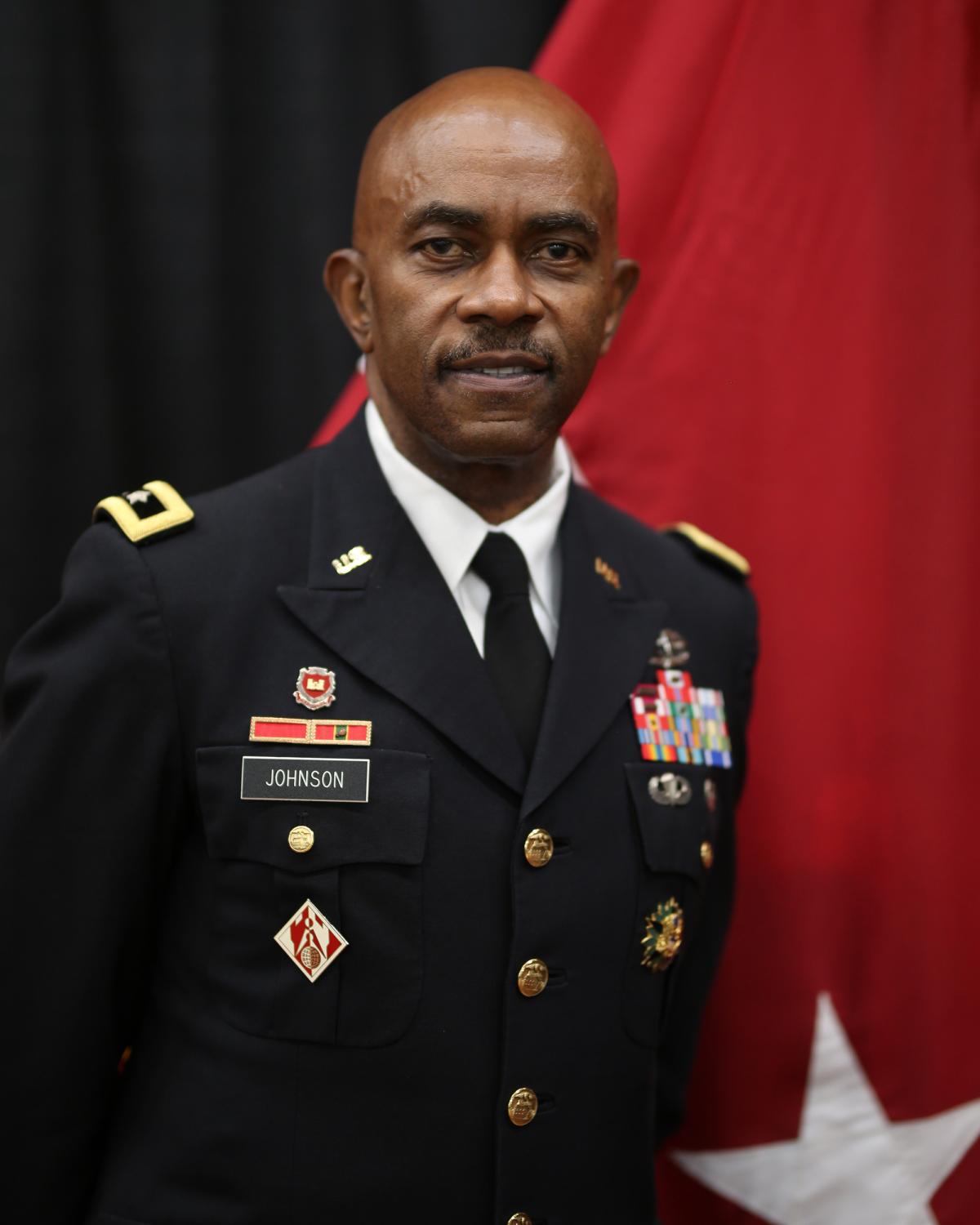
What do you find yourself reflecting on as Veterans Day approaches?
For me, it's pride in having had the opportunity to serve and reflecting upon those whom I served with that may no longer be here.
If people would just pause to think about it for a minute, that would be a good thing. I got really frustrated on 9/11 this year, because I was remembering it deep in my soul, but the world seemed to have moved on. And I think sometimes that happens with Veterans Day, and Memorial Day as well. I understand — Americans are busy, and we have short memories. But I'm proud to have been able to serve.
You find yourself thinking about Donald Lesch, for example.
I do. Yeah. I do.
He was crusty, old, mean warrant officer — until he became like a dad.
I'll tell you this story: I was stationed in Germany for my first assignment. Someone comes down to the motor pool where we're all doing maintenance on vehicles and tells me I have a visitor. I have a visitor? I'm in Aschaffenburg, Germany — who's visiting me? I walk up from the motor pool, and I see this guy standing there in his green trench coat. And as I approach, he salutes me. It was Chief Warrant Officer Donald M. Lesch. He had left Chicago teaching ROTC and gotten a job at the Hanau American High School in Hanau, Germany. And he kept track of me. That's where we first reconnected, in 1977, and we never disconnected after that.
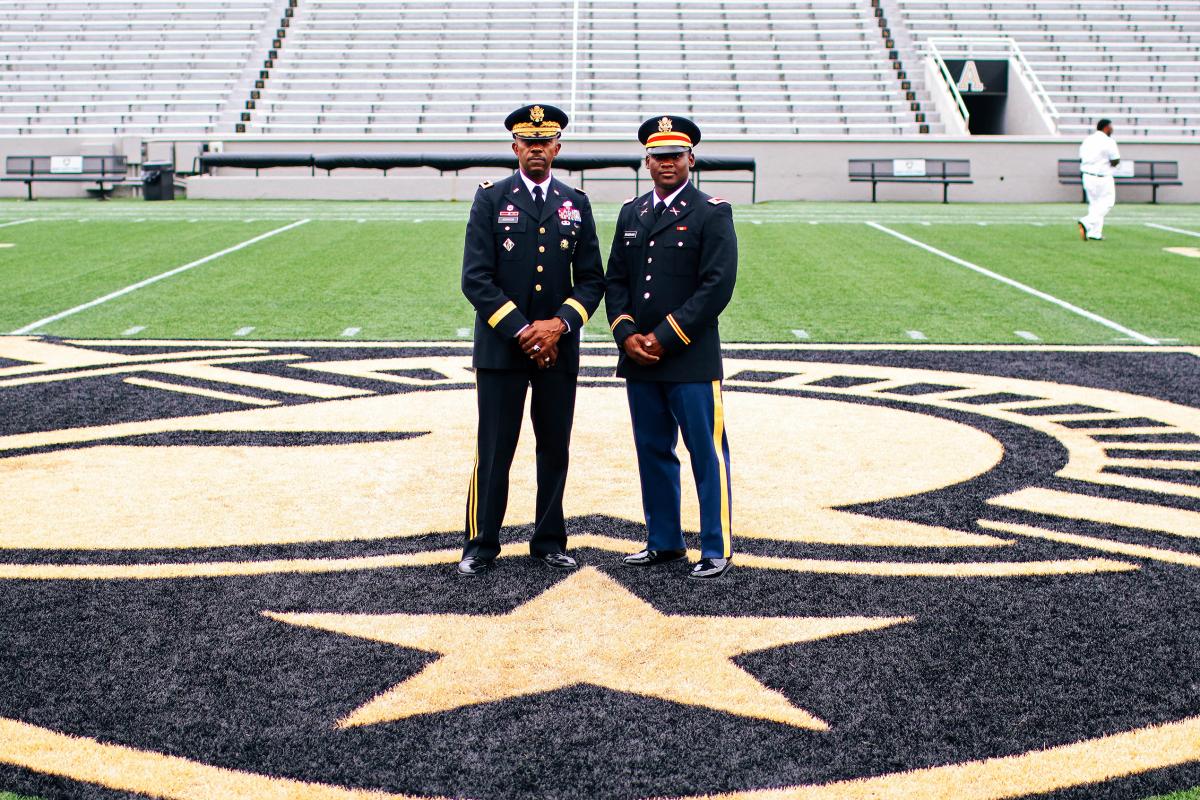
Johnson with U.S. Military Academy then-quarterback Ahmad Bradshaw at midfield in Michie Stadium. Johnson has remained connected to West Point since he earned his bachelor's in mechanical engineering there, including a stint teaching freshman calculus. He is currently a member of the West Point Associate of Graduates Board of Directors. (Photo Courtesy: Ronald Johnson)
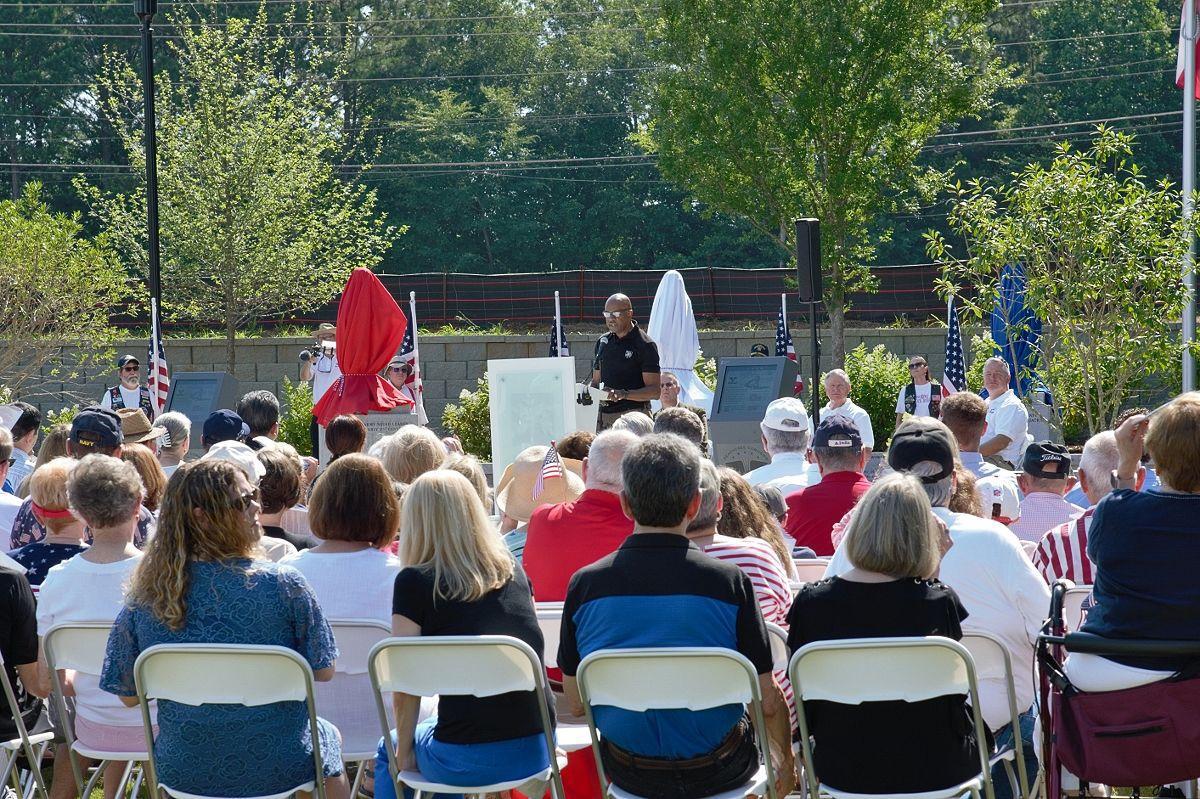
Johnson speaking at the Veterans Memorial dedication in Roswell, Georgia. (Photo Courtesy: Ronald Johnson)
How did you end up as the NBA’s first senior vice president of referee operations?
In September 2006, the Army chief of staff’s office calls me and tells me David Stern, the commissioner of the NBA, wants a general officer to come and speak to their rookie camp. And the chief wanted me to do it. I went, I thought it was great — and I never thought about it again.
After my retirement ceremonies on March 31, 2008, I interviewed with Lockheed Martin and got an offer to be their VP of performance excellence. I’m on retirement leave, so I’m not going to work until July 1. Fast forward to late May or early June, and my son leaves a message on the kitchen countertop that David Stern wants to talk to me. OK, real funny. I'm not falling for that. He goes, “No, Dad, seriously. A lady called, here's her number. She said David Stern wants to talk to you.”
So I get David on the phone and he asked me what I'm going to be doing. He says, “Don't do it. I have another idea that I’d like to talk to you about. Be in my office tomorrow.” The next day, I meet him and he invites me to Boston for a Boston-L.A. NBA Finals game. Then they invite us to L.A for another game. My son’s a teenager; he’s eating it up. On my fourth visit to the NBA office, David finally tells me he’s creating a new department to lead the league’s officials, and he wants me to lead it.
I told him no — I've never refereed at that level. How am I going to lead those people? David said he didn't want someone that was a master at the rules of basketball. He wanted a leader.
I went back to Virginia to think about it. And I talked to one person, a retired four-star general named Larry Ellis. He told me, “You'll be an engineer until you die. No one can ever deny you that. But this is really kind of different and special. I think you should do it.” So, I did.
What did you learn in that role? How did it shape you?
I tried to come in with my strengths. Everybody thinks they know the game of basketball and the rules. I wasn't naive to it, but I didn't care about that. What I was going to do was figure out a way to bring my skills to the NBA — and that was looking at all the rich data and video they had to grade referee calls and come up with an objective way of measuring how we were doing. Then we used that to figure out what to prioritize during referee camps and what to prioritize teaching our fans about. If you go to NBA.com today, you'll see a video rulebook that was created when I was there to show fans how the rules are interpreted.
At my retirement ceremony, I said that I had no idea what I was going to be doing next. But I also said, 'When this is all over, I will be teaching calculus or leadership at a university.' I figured it would be a community college or a small college, never a place like Georgia Tech.
RONALD JOHNSON
Professor of the Practice
Retired Army Major General
Georgia Tech seems like a third phase of your career. What brought you back to an academic environment?
Besides my time leading soldiers, I think my other impactful moment was as a professor at West Point teaching in the math department. I was the course director for plebe, or freshman, calculus. And I was the officer representative for the men’s and women's indoor and outdoor track team.
While at West Point, I ended up as an adjunct professor at SUNY New Paltz teaching finite math. I really enjoyed that. So I knew this is where I would end up. I just didn't know where. At my retirement ceremony, I said that I had no idea what I was going to be doing next. But I also said, “When this is all over, I will be teaching calculus or leadership at a university.” I figured it would be a community college or a small college, never a place like Georgia Tech.
What’s your favorite part of being a Georgia Tech faculty member?
My favorite part is teaching. The worst part is grading. In the classroom, when you see a student’s light bulb go off, that's so exciting. You also see a light not come on sometimes, and that can be frustrating, but then you just keep at it.
Related Content
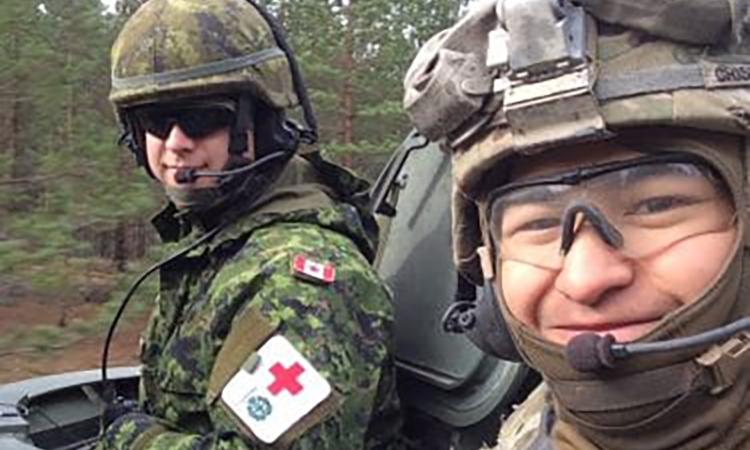
Army Medic to NASA ‘Space Plumber’: An Army Veteran’s Journey at Tech
ME student Corey Crisostomo cultivated a love for engineering during his seven years as a United States Army medic.
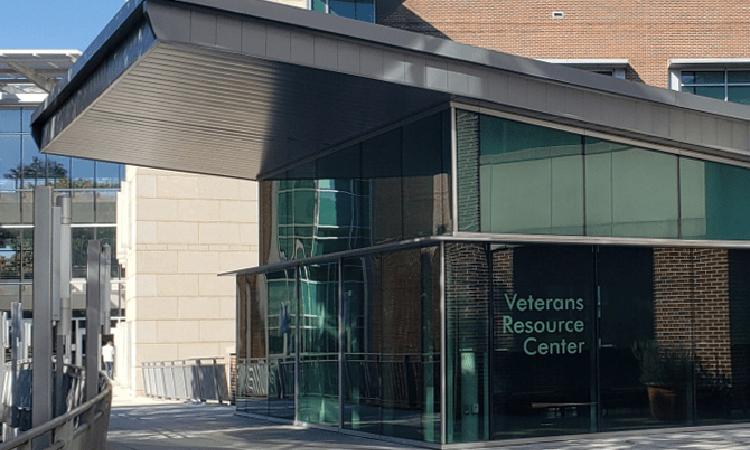
Veterans Resource Center Celebrates Ten Years of Service
Georgia Tech established a student veteran workgroup in 2012 to provide support and a sense of belonging to the student veterans on campus. Their efforts led to creation of the Veterans Resource Center in September 2013.